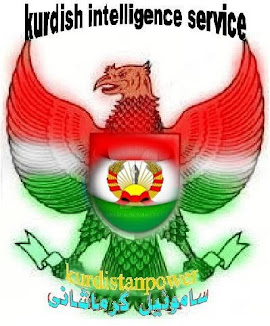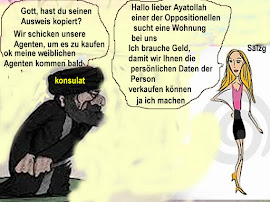Cipher Brief Experts on Haley’s Iran Accusations
U.S. Ambassador to the United Nations Nikki Haley yesterday displayed an array of singed missile remnants and other parts that she said constituted “concrete” evidence that Iran had illegally supplied weapons to Houthi rebels in Yemen in direct violation of U.N. Security Council Resolution (UNSCR) 2231. In addition to codifying the Iran nuclear agreement, the resolution also prohibits Iran from engaging in such weapons transfers. Haley’s comments might indicate a willingness by the Trump administration to take further action in response.
Some of the parts belonged to a short-range ballistic missile fired by the Houthis toward an airport outside of Riyadh, Saudi Arabia, in November, Haley said, confirming recent comments from U.S. Defense Department officials that the missile appeared to be Iranian-made. Haley spoke in a hangar at the U.S. military’s Joint Base Anacostia-Bolling, as she pointed to parts that also included an antitank guided missile, a small kamikaze drone and an explosive-laden boat. Haley said Iran provided all of the equipment to the Houthis.
“All of these weapons include parts made by Iran, some by Iran’s government-run defense industry,” said Haley. “All are proof that Iran is defying the international community.” She added, “The Iranians are not supposed to be exporting any missiles or any related materiel.”
The U.S. government will release additional evidence of subversive activity undertaken by Iran in Lebanon, Iraq and Syria, Haley said. The National Security Council is in the process of determining an appropriate response, and Congress is working to draft legislation in reaction to the apparent violations.
“No one in the business doubted” that the missile the Houthis fired at Riyadh was Iranian-made, after the Defense Department’s confirmation, said James Jeffery, Cipher Brief Network Member and former U.S. Ambassador to Iraq. But Haley’s “hyping it might portend some sort of new Trump action against the [Iran nuclear agreement].”
Iran’s U.N. mission called Haley’s accusations “unfounded,” dismissed the evidence as “fabricated” and “categorically” rejected claims that Iran is in violation of the resolution.
The Cipher Brief spoke with Network Members Norm Roule, former national intelligence manager for Iran at the Office of the Director of National Intelligence; Rob Richer, former associate deputy director for operations at the CIA; and Emile Nakhleh, former member of the CIA’s Senior Intelligence Services. They discussed whether the evidence presented by Haley was conclusive, what the announcement could mean for U.S. policy towards Iran, and the potential international response to such accusations.
It remains to be seen whether the evidence is deemed conclusive by the other permanent members of the U.N. Security Council (with the U.S., the P5)—the U.K., France, China and Russia.
Norm Roule: For months, the U.S., the Saudis and others have complained that Iran has provided advanced weapons technology to the Houthis. The amount of evidence provided today is significant. The fact that the administration is encouraging P5 members to examine the weapons shows the administration’s confidence in its narrative.
Rob Richer: The evidence is not conclusive. The Iranians have an extensive defense industry and their weapons are shipped to many parts of the world. Further, those weapons have also been shipped to Hezbollah in Lebanon, the Syrian Army and to militia elements in Iraq, and have even surfaced as far east as the Philippines. U.S. weapons have been used to conduct attacks against U.S. and foreign interests as well.
In short, Haley is saying that the manufacturer of the weapons is responsible, not the user. Unless someone can provide a direct smoking gun, such as a shipping manifest or other documents which clearly identify the weapons and how they were sourced, this is simply speculation to further support the administration, Saudi and Israeli case to militarily confront Iran.
Emile Nakhleh: The weapons on display, which U.N. Ambassador Nikki Haley has touted as prima facie evidence of Iran’s dastardly acts in the region, could well have been made in Iran and delivered to the Houthi rebels.
Two key questions, however, must be answered before Haley continues to push for war with Iran: First, were these weapons provided by the Iranian government or surreptitiously by the Islamic Revolutionary Guard Corps (IRGC) or other Iranian organizations?
Second, while the supply of these weapons might well be in violation of the spirit of the Iran deal and UNSCR 2231, do they provide “concrete evidence,” as Haley claims, that Iran has violated the letter of either the nuclear deal or the resolution? Whereas the resolution prohibits Iran from experimenting with advanced missiles that could carry nuclear warheads, Haley has presented no evidence that the missiles on display are capable of carrying such warheads. It’s no surprise that Iran is militarily supporting the Houthi fighters in response to the Saudi-led war in Yemen.
One important question is whether the Iranian-made weaponry that was procured by the Houthis could have been lost, stolen or sold to the group via a third-party broker, similar to how U.S. munitions reportedly ended up in the hands of ISIS militants in Iraq.
Roule: I can’t imagine any way that would be possible. In the first instance, ISIS captured U.S. munitions left in Iraq after the war. Iran is not allowed to export any weapons, particularly missiles. But the question of determining how Iran delivered these weapons – and the personnel almost certainly needed to help in their assembly and firing – should be a priority, if only to prevent more weaponry from reaching Yemen.
In fact, there are only so many ways such weapons could have been delivered, and at this point, it becomes necessary to explore each to cross them from the list. Have such weapons been delivered via Iranian vessels carrying humanitarian aid? What about via Oman? In any case, this issue underscores the need for extraordinary scrutiny of Iran’s aircraft and ships operating in the region.
Richer: Yes, it is very possible that the weapons could have been obtained from a number of weapons brokers, black market smugglers or countries reselling the weapons.
Nakhleh: It is possible that the Houthis could have gotten those weapons from some elements within or outside Iran without the knowledge and complicity of the Iranian government. On numerous occasions in recent years, U.S. intelligence discovered that U.S.-manufactured weapons, which Washington and its allies had sold to friendly groups and governments, had fallen into the hands of terrorist organizations and other anti-American groups.
Saudi Arabia is also a case in point. When the Saudi regime was called out on its funding of al-Qaida and other radical organizations, it argued that terrorist funding came from private Saudi citizens and other wealthy individuals in the Gulf, not from official organs of the Saudi government.
It also seems unlikely that the evidence presented by Haley is enough to push the international community towards abrogating the Iran nuclear accord.
Roule: I am not sure that the international community would say that Iran’s interventions violate UNSCR 2231, which is essentially a nuclear deal. Russia will certainly argue that it does not. For this reason, I don’t think the international community will abrogate the nuclear deal.
At the same time, the Obama administration repeatedly said that all tools were on the table to handle any possible non-nuclear Iranian misbehavior. Well, the time has come to use these tools.
Richer: As of last week, the only country expressing the intent to abrogate the nuclear agreement was the U.S., backed incessantly by Israel and, again, the Saudis. None of the other Western countries involved have seen any indication that Iran has violated the resolution. It would take very, very specific and irrefutable evidence to push those countries to support the abrogation of the treaty.
Nakhleh: There will be calls for more sanctions, but not much else will happen. The Russians would veto any U.S.-drafted resolution imposing more sanctions on Iran. Nor will the U.N. abrogate the Iran nuclear deal.
When the U.S. signed the deal, our senior policymakers were cognizant of the fact that Iran was engaged in actions—including, for example, supporting proxy groups such as Hezbollah, helping Syrian President Bashar al-Assad, colluding with Russia to preserve the Assad regime, and undermining the rise of Sunni Saudi Arabia—that were and still are inimical to U.S. interests. However, The Obama administration decided at the time that those policies should be negotiated separately.
From Washington’s perspective, the goal of the nuclear deal was then—and should remain so now—to halt Iran’s nuclear program, restrict its nuclear enrichment capability, and prevent it from acquiring a nuclear weapon. Iran’s nuclear program and its nefarious behavior in other areas should be kept separate – and rightly so.
The Obama administration’s position at the time was: Let’s sign the nuclear deal and then negotiate with Iran on its behavior in areas we find objectionable. Mixing the two areas, as the Trump administration and its U.N. ambassador are clamoring for, is a recipe for disaster and a prelude to another Gulf war.
In her announcement, Haley also mentioned that the U.S. government would be releasing further evidence of Iran’s arming of proxy groups in Lebanon, Iraq and Syria. That also could have implications for U.S. policy towards Iran.
Roule: In that it is widely known that Iran is engaged in such activity, the aim would be to further compel the Europeans, the European Union and Russia to take more robust action against Tehran. But we should recognize that releasing this evidence in such a public fashion and taking no action would tell the Iranians that the international community is toothless. This belief could encourage more dramatic nefarious activities by Iran that could actually lead to a conflict. It is imperative that the release of this evidence be followed up by multilateral action against Iran.
Richer: I’m not sure what the implications would be outside of supporting a U.S. political agenda. We arm many proxy groups, including groups which eventually have turned on us. Some of the most extremist of the groups fighting against the Syrian regime were armed by the Saudis and are using U.S. weapons. For example, we’ve armed various Kurd factions fighting ISIS in Syria. Some of those groups are anti-Turkey and will eventually use those weapons against the Turkish government. When that happens, is the U.S. culpable? We also provide Russian made weapons to our proxy groups—does that make Russia culpable?”
Nakhleh: Washington and its Saudi and other Mideast allies have dealt with and armed proxy groups for decades in Lebanon, Iraq, Syria, Yemen, Libya, the African Sahel countries, Somalia and elsewhere. War through proxies has been more evident, more bloody and more sectarian since the eruption of the Arab Spring in 2011. Although Washington has used proxies on a case-by-case basis, the reliance on proxies, both Shia and Sunni, has been a fundamental component of Iran’s strategic doctrine.
As the international community reviews the evidence against Iran, the U.S. will weigh its own options to address Iranian-backed proxies.
Roule: Iran will not cease its aggressive interventionism unless it is compelled to do so by regime-threatening international sanctions. The Supreme Leader, the IRGC, and other hardliners will shrug off any diplomatic pressure and may exploit such discussions to build facts on the ground, just as it did when Iran was invited into the diplomatic discussions on Syria. Although the West should engage Iran’s president and foreign minister, this engagement should be done simultaneously with sanctions, in order to explain that pressure will increase unless Iran withdraws its personnel and weapons from the region.
But in the short-term, I see several things playing out.
First, the Iranians will begin a counter-narrative in their own press. They will undoubtedly claim the information is fabricated. We should watch to see if Russia supports them.
Second, the U.N. will scramble to respond. Ambassador Haley has done a good job focusing this issue. The question now becomes which partners join us in framing action within the U.N. Security Council. Again, Russia’s response will be important.
Third, I think businesses and banks will see this as one more reason not to invest in Iran. Those with investments in Iran would be well-advised to begin to withdraw before sanctions prevent them from doing so.
Lastly, this may provide justification for action against Iran. Literally, thousands of Americans and multiple other nationals are put at risk by these missiles. We also need to stand with the Saudis and Emirates. They are important allies and friends. They are being fired upon by Iran, and we need to show that we will do everything we can to help protect their citizens.
Richer: Part of what needs to happen to address the proxies is to resolve some of the political issues at play, which have fueled the growth and actions of such groups. Unfortunately, the current U.S. administration, due to Saudi and Israeli pressure, along with some regional and political naiveté on the part of those in the White House, are looking for answers using military force.
In terms of more forceful action against Tehran, military options are minimal and would most certainly lead to an escalation of conflict in the region. As well, except for the Israelis and the Saudis, along with Saudi client countries in the region, no one else wants such an escalation.
In terms of more economic or political sanctions or steps, unless there is irrefutable proof of misdeeds by the Iranians, the world and the U.N. will not support them.
Bottom line, unless real hard evidence is presented and it is undeniable and significant, the U.S. will stand alone with Israel and Saudi Arabia in trying to take the next steps.
Nakhleh: In the long run, there is no substitute for negotiation with Iran about the future of the region in the post-Saddam and post-Assad eras. It’s naive to think that Washington could devise a more stable architecture for a post-Sykes-Picot Middle East without engaging Iran. Despite the anti-Iran Saudi propaganda, and whether Ambassador Haley likes it or not, Iran is a major Gulf and regional power, which cannot be overlooked.
https://www.thecipherbrief.com/haley-asserts-direct-iranian-connection-houthi-weapons#.WjO0OhuhGLR.twitter



















.jpg)






































Inga kommentarer:
Skicka en kommentar